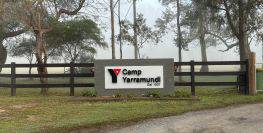Established in 1853 as the YMCA of Sydney, the YMCA NSW has a long and successful history of helping to create healthier, happier connected communities.
Originally, the organisation focused on the fitness and wellbeing of young men, with our Pitt Street premises housing both a gymnasium and a physical culture program run by well-trained instructors.
During World War I, the YMCA’s efforts expanded as we played an important role in providing a place for soldiers to relax and be able to communicate back home while the opening of Camp Yarramundi in 1937 has enabled us to create childhood memories for many Australians while promoting the idea of building solid relationships between families and friends. Today, the YMCA NSW still holds great importance in this ideal through the running of our Siblings Reconnect camps, Father and Kids camps and use of the site for school retreats.
Despite the expansion of services, the YMCA NSW never lost its passion for creating healthier lives and after the wars continued to grow in that area around the ideals of gymnastics, fitness and sports including the opening of YMCA sites in Arncliffe, Bankstown, Caringbah, Epping and Penrith. Today, we are one of the largest providers of gymnastics in NSW and we manage almost 40 health, fitness and indoor sports centres that stretch from the southern tip of NSW all the way to border with South Australia in the west and far Northern NSW.
In more recent times, the YMCA NSW has also become one of the leading before and after school care providers in NSW while also working to be a greater advocate for the community, young people and people with disabilities.
With over 2,000 staff in over 100 locations, today the YMCA NSW is committed to healthy living, providing pathways for Children and young people to be empowered and supported to reach their potential as well as access and participation. We do this within a primary purpose of providing safe environments for children, young people and vulnerable adults.








